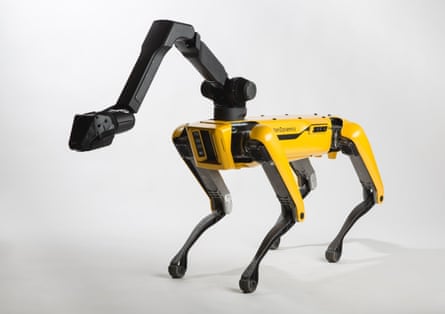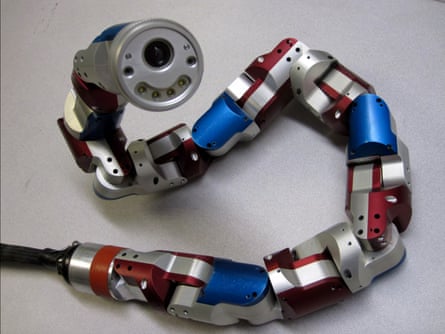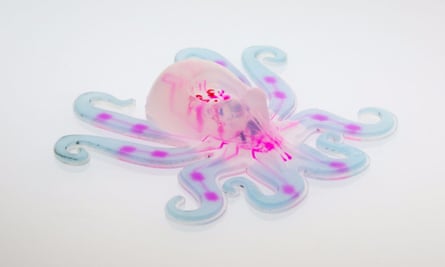Marsbees
Last week, Nasa announced that it is developing robotic bees to gather information about areas of Mars that wouldn’t be accessible to a Mars rover. The bots could detect, for example, methane, a possible sign of life.

SpotMini
Boston Dynamics’ latest robot resembles a dog with an arm where its head should be. It recently demonstrated it can use the arm for the complex (in robot terms) action of opening a door, despite the intervention of man with a hockey stick.

MantaDroid
Designed by Singaporean researchers, this bot swims like a manta ray. Its fins are flexible, giving it the ability to glide through turbulent seas. The team hopes that the bot could prove useful for underwater searches and gathering marine data.

Snakebot
Researchers at Carnegie Mellon University’s biorobotics lab have designed a series of non-lethal reptilian robots. Snakebots have been used to search sewers and earthquake sites and by surgeons to explore normally inaccessible sites.

Octobot
Like its inspiration the octopus, this bot from Harvard’s Wyss Institute doesn’t feature any solid components. Underneath its silicone skin, chemical reactions between 3D-printed chambers power the pneumatic movement of its tentacles.

Comments (…)
Sign in or create your Guardian account to join the discussion